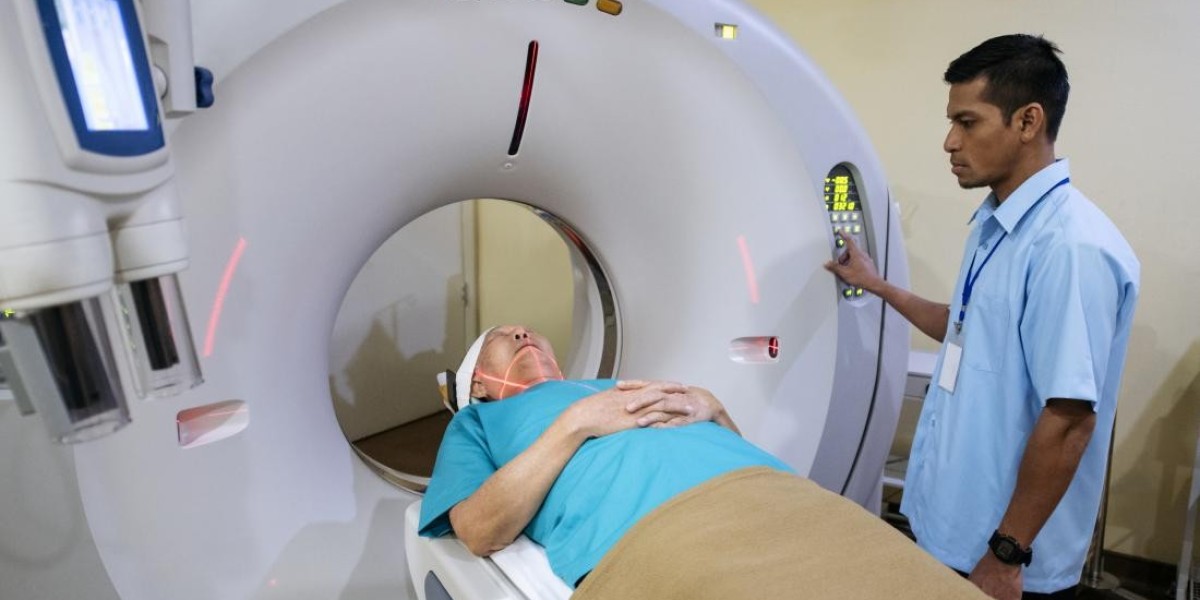CT Scan Cost in Bangalore: Your Ultimate Diagnostic Guide
If you're feeling confused or overwhelmed by the CT scan cost in Bangalore, you're not alone. From small diagnostic labs to top-tier multi-specialty hospitals, Bangalore offers a wide variety of pricing options depending on your needs. Knowing where and how to book your scan can help save both time and money.
What is a CT Scan and How Does It Work?
A CT (Computed Tomography) scan is a highly advanced diagnostic imaging test. It combines a series of X-ray images taken from different angles to create detailed cross-sectional views of internal organs, bones, and tissues. This scan is especially helpful for diagnosing injuries, tumors, infections, and vascular diseases.
Why You Might Be Asked to Get a CT Scan
Doctors usually prescribe CT scans to:
Detect abnormalities in the brain, chest, abdomen, or spine
Guide surgeries or biopsies
Monitor the progress of diseases like cancer
Examine internal injuries after trauma or accidents
Its accuracy and speed make it an essential tool in both emergency and routine diagnostics.
Common Types of CT Scans
1. Brain CT Scan
Used to identify strokes, brain tumors, or internal bleeding.
2. Chest CT Scan
Helpful in detecting lung infections, pneumonia, tuberculosis, or tumors.
3. Abdominal & Pelvic CT Scan
Used to examine kidneys, liver, intestines, bladder, and reproductive organs.
4. Spine CT Scan
To identify slipped discs, injuries, or spinal infections.
5. Full Body CT Scan
Often part of preventive health check-ups or cancer screening.
What Affects the Pricing of CT Scans in Bangalore?
1. Area of the Body Being Scanned
Scans for specific organs cost less compared to full-body scans.
2. Contrast vs. Non-Contrast
Scans with contrast (a special dye) cost more but offer enhanced clarity.
3. Type of CT Machine
Centers using high-slice (64, 128, or more) CT machines tend to charge more for better accuracy.
4. Urgency
Emergency scans or same-day reporting may involve additional charges.
Average Price Range of CT Scans in Bangalore
Scan Type | With Contrast | Without Contrast |
Head/Brain | ₹2,000–₹3,500 | ₹1,200–₹2,000 |
Chest | ₹2,500–₹5,000 | ₹1,800–₹3,000 |
Abdomen & Pelvis | ₹3,500–₹6,000 | ₹2,500–₹4,000 |
Spine | ₹2,500–₹5,000 | ₹1,500–₹3,500 |
Full Body | ₹8,000–₹14,000 | ₹6,000–₹10,000 |
Note: These are approximate figures and may vary depending on location and center.
How to Prepare for a CT Scan
Fasting Requirements
For contrast scans, you may need to fast for 4–6 hours.
Clothing & Accessories
Wear loose clothing and avoid any metal items like jewelry, belts, or zippers.
Medical History
Inform your doctor about allergies, pregnancy, or kidney problems, especially when contrast is involved.
The Procedure: What to Expect
Preparation
You may be asked to change into a gown. If contrast is needed, an IV line is inserted.During the Scan
You'll lie on a table that slides into a large doughnut-shaped scanner. Remain still as the machine captures images.Post-Procedure
If contrast was used, drink fluids to help flush it out. Reports are usually available within 24–48 hours.
Who Should Avoid CT Scans?
Pregnant women, unless medically necessary
People with kidney issues, especially when contrast dye is required
Patients with prior severe allergic reactions to contrast material
Always consult with your doctor to weigh the risks and benefits before undergoing a CT scan.
Tips to Save on CT Scan Charges
Compare Multiple Centers: Prices can vary dramatically. Start with this ct scan cost in bangalore comparison page.
Look for Discounts: Some centers offer early-morning or weekday discounts.
Use Health Packages: Bundled health check-ups often include scans at reduced rates.
Cashless Insurance Tie-ups: Opt for centers that support your health insurance for smooth billing.
Final Thoughts on Medical Imaging Costs in the City
Understanding the CT scan cost in Bangalore can help you avoid surprises and plan your healthcare better. As medical imaging continues to improve, prices are also becoming more competitive across the city. Make sure you research, ask the right questions, and choose a diagnostic center that offers a balance of affordability and expertise.
FAQs (No Focus Keyword Used)
Q1. Can I eat after a CT scan with contrast?
Yes, you can usually eat after the scan. It’s also recommended to drink extra water to help flush the dye from your system.
Q2. What should I bring to my scan appointment?
Carry your doctor’s prescription, previous imaging reports (if any), and a valid ID card.
Q3. Is it safe to have a scan if I have metal implants?
Yes. Unlike MRIs, CT scans don’t use magnets, so metal implants usually don’t interfere.
Q4. How soon will I get the scan report?
Typically within 24 to 48 hours. Some centers offer express services for same-day results.
Q5. Are there any risks involved with this scan?
There is minimal radiation exposure. For most people, it’s safe, but it should only be done when medically necessary.
Q6. Will I feel discomfort during the scan?
The procedure is painless. If contrast dye is injected, you might feel a warm flush or metallic taste.
Q7. Can I continue my medications before the scan?
Most medications can be continued, but consult your doctor, especially if you're diabetic or on metformin.
Q8. What’s the difference between contrast and non-contrast scans?
Contrast scans use a dye to enhance image clarity, particularly for blood vessels and soft tissues.
Q9. Can children undergo this scan?
Yes, but only if prescribed by a pediatrician. Special pediatric protocols are followed to limit radiation.
Q10. What is a slice count in scanning machines?
Slice count refers to the number of image sections captured in one rotation. Higher slice machines (e.g., 128-slice) offer more detail and faster scans.






